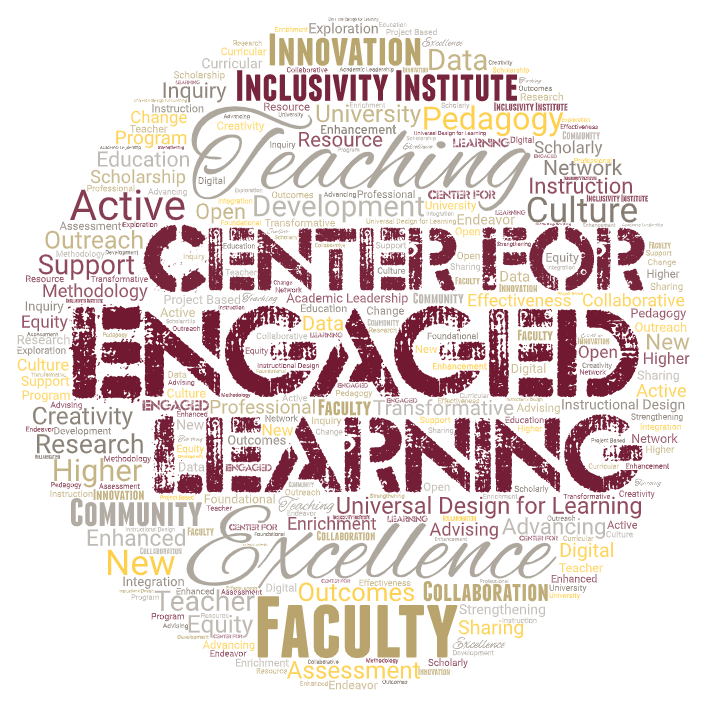CEL Teaching Support
CEL provides individualized support to help faculty design engaging, inclusive, and effective learning experiences. Our team works collaboratively with faculty at any stage of course development.
Tarot of Teaching Cards
The Tarot of Teaching deck is a creative tool designed to enrich and energize the structure of a class period. It divides the flow of a lesson into three key stages, each represented by a different category of cards: Starting Our Journey (the beginning of class), Along the Way (the middle of class), and Reaching Our Destination (the end of class). Each card within these categories offers a unique teaching tip aligned with its intended time in the class period, making each session more engaging, organized, and impactful.
Check out the KUxCEL online journal for more information and to download the Tarot of Teaching cards!
Engaged Design and teaching Course
The Engaged Design and Teaching course is an on-demand, self-paced, and fully online learning experience designed for KU faculty. By the end of the course, participants will be able to design courses with intention by integrating Universal Design for Learning (UDL), clear learning outcomes, and inclusive, engaging teaching practices across all modalities.
The course includes four modules:
-
Module 1: Universal Design for Learning – Explore strategies for reaching diverse learners and begin applying UDL principles through guided reflection.
-
Module 2: Design and Align Learning Outcomes – Build well-structured learning outcomes and ensure assessments, materials, and activities are aligned with course goals.
-
Module 3: Inclusive Teaching – Reflect on your teaching assumptions, examine inclusive practices, and plan approaches that foster equity and growth.
-
Module 4: Building Connections and Engagement – Apply community-building strategies, design active learning experiences, and structure meaningful feedback for students.
Contact the CEL for more information!
KUtztown exCEL: faculty journal of the CEL
Our online journal, KUtztown exCEL, is a place to learn more about how KU's faculty are advancing pedagogy by advocating for students and working together to enact an understanding of teaching and learning within a community of mutual respect.
Articles published in this journal combine personal experience, current conversations in academia, and a theoretical foundation that presumes the value, strength, and independent thinking of all learners.
Faculty Mentoring Program
The Faculty Mentoring Program is open to all faculty. Mentee-mentor pairs meet regularly throughout the academic year with support from the CEL.
If you would like to request a faculty mentor or if you would like to become a faculty mentor, please visit our Faculty Mentoring page.
more CEL Services
-
CEL Engaged Teaching and Learning Sequence
Professional Learning Opportunity for KU Faculty
CEL Engaged Teaching and Learning Sequence 2026
An Initiative of the Center for Engaged Learning Inclusivity InstituteDeadline for registration: TBA, Spring 2026
Register by completing our online form. Notifications for enrollment are automatic via email.
PURPOSE:
The purpose of the professional learning opportunity is to provide KU faculty with the skills and knowledge that help positively impact their teaching and learning through a sequence of four two-week facilitated online, asynchronous courses. Participants are eligible to participate in any or all of the below facilitated online, asynchronous courses. The expected outcome is cultivating engaged students through the deliberate and thoughtful design of a learning environment that supports their growth and development as purposeful, motivated learners.
SCHEDULE:
The 2026 course sequence is listed below:
- Course 1: TBA May - June: Basics of Universal Design for Learning (UDL)*
- Course 2: TBA June: Design and Align Your Learning Outcomes
- Course 3: TBA June - July: Inclusive Teaching*
- Course 4: TBA July: Lecture Transformation
*These courses are each eligible for $300 in professional development funding upon completion.
AWARD:
Participants who complete Course 1 and Course 3 of the sequence will be allotted $300 of professional development funding for each, upon completion. The Center for Engaged Learning’s leadership team will make the final determination on the successful completion of all aspects of professional learning.
For more information, please visit the CEL Engaged Teaching and Learning Sequence page!







